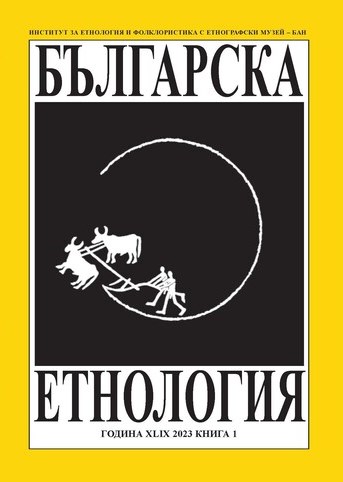От молдовския Кортен до Алтай и обратно в Тарутино, Украйна. „Голямата“ тема за съветските депортации в „малките“ истории на българите от Бесарабия. Част 3
From Moldavian Corten to Altai and back to Tarutino, Ukraine. The ‘Big’ Theme of the Soviet Deportations in the ‘Small’ Stories of the Bulgarians from Bessarabia. Part 3
Author(s): Galin GeorgievSubject(s): History, Anthropology, Social Sciences, Customs / Folklore, Oral history, Recent History (1900 till today), Cultural Anthropology / Ethnology, Culture and social structure , Migration Studies, Ethnic Minorities Studies, Identity of Collectives
Published by: Институт за етнология и фолклористика с Етнографски музей при БАН
Summary/Abstract: The present text, the first parts of which are published in the previous two issues of “BulgarianEthnology” journal, presents the last, concluding part of an ethnological study conducted within the framework of an IEFSEM – BAS project and dedicated to an important and current problem in the post-Soviet space. It is about the ‘big all-Union’ topic of repressions and deportations in the former USSR, illuminated on the basis of the ‘small’, private example of a Bulgarian settlement in the Bessarabia region. The purpose and tasks of the study are aimed at revealing the main aspects of the collective memory of those deported in 1949 as a result of the collectivization in the then Moldavian SSR of 80 Bulgarian families from the village ofKorten (or Kiryutnia) and of their residence for about ten years in the Altai region of today’sRussia. The research is the result of the field ethnographic expedition conducted in the summer of 2021 in the town of Tarutino, Odesa region of Ukraine, where after the death of Y. V. Stalin and their subsequent rehabilitation, some of those people settled down to live, returning from the far northern lands in Bessarabia. However, those declared by the authorities as kulaks are not allowed to settle closer than 40 km from their native village and they choose as their newport the former German colony – well-known for them before the so-called lifting, i.e. before deportation, a market and business centre with the old name Chokrak.The main object of study in the first two and in the present last part of this text are the trajectories of memory about deportation, about forced migration and about the return from exile, i.e. for the return journey from Altai again to Bessarabia. The analysis text, built almost entirely from the author’s own field materials, aims to reflect the main points of reference, the accents in the memories, through which our interlocutors nowadays present and empathize with the events that took place in their childhood and youth years.
Journal: Българска етнология
- Issue Year: 2023
- Issue No: 1
- Page Range: 100-121
- Page Count: 22
- Language: Bulgarian

